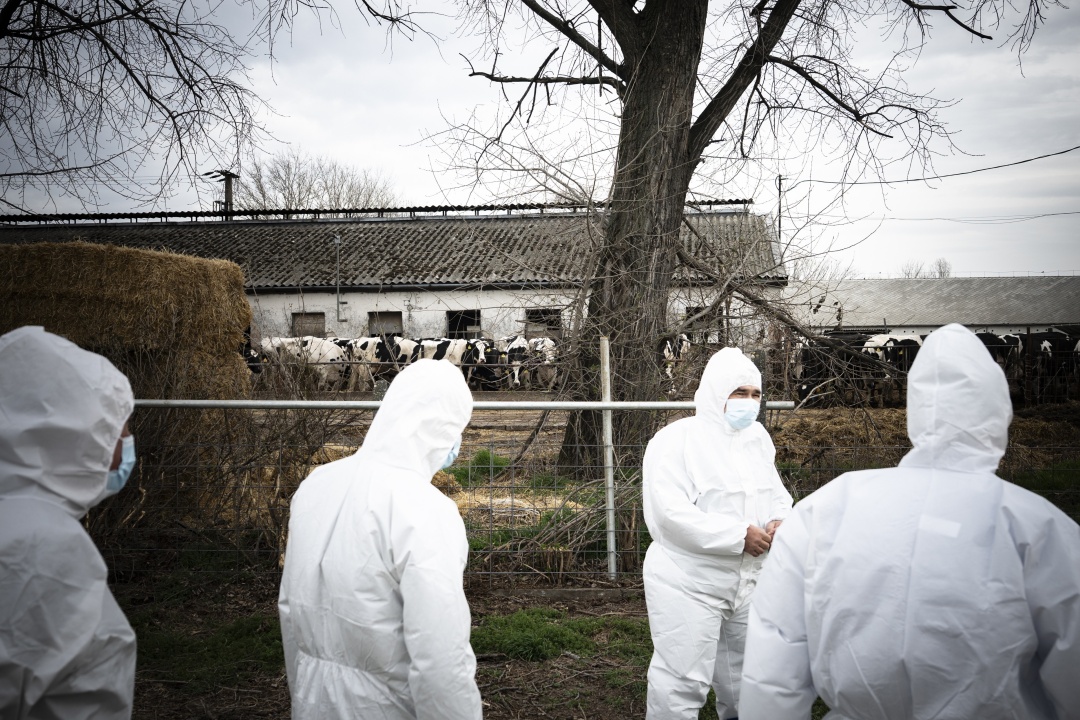
The virus is also spread by wind and this is currently the most likely mode of transmission in the northwestern part of Hungary.Continue reading

Two more farms in Darnózseli and in Dunakiliti have been affected by the foot-and-mouth disease virus in Győr-Moson-Sopron county (northwestern Hungary), the Agriculture Minister announced in a video posted on his Facebook page on Wednesday.
István Nagy said that by the morning of April 2, laboratory tests had confirmed the presence of the disease in the herd. On one farm, 1,000 cows were affected by the virus, 2,500 on the other.
As a result of the developments, new measures will be introduced: disinfection points will be set up at all border crossings from Rajka to Esztergom, and vehicles will have to be disinfected before entering and leaving the country. From now on, disinfection points will be set up at every exit from Hegyeshalom to Bőny on the M1 motorway, and disinfection mats will be laid to prevent the virus from escaping from the county and to control it, the minister listed.
For the successful implementation of these measures, they are asking for the help of the defense forces to ensure that the virus control can be carried out in an orderly and disciplined manner, 24 hours a day, under controlled conditions,
Nagy said.
“I ask everyone to follow the instructions of the authorities to the letter and in a disciplined manner. This is the only way to prevent further outbreaks,” the Agriculture Minister urged.
Although so far, no cases of foot-and-mouth disease have been detected in the Czech Republic, Czech authorities are stepping up preventive measures in view of the proximity of the Slovak outbreak, Czech Agriculture Minister Marek Výborný announced at a press conference in Prague on Monday. The Czech measure affects Slovakia, Hungary, Lower Austria, and Burgenland (Austria) from which countries imports of certain animal products have been banned since midnight on Monday.
Featured photo via MTI/Miniszterelnöki Sajtóiroda/Benko Vivien Cher